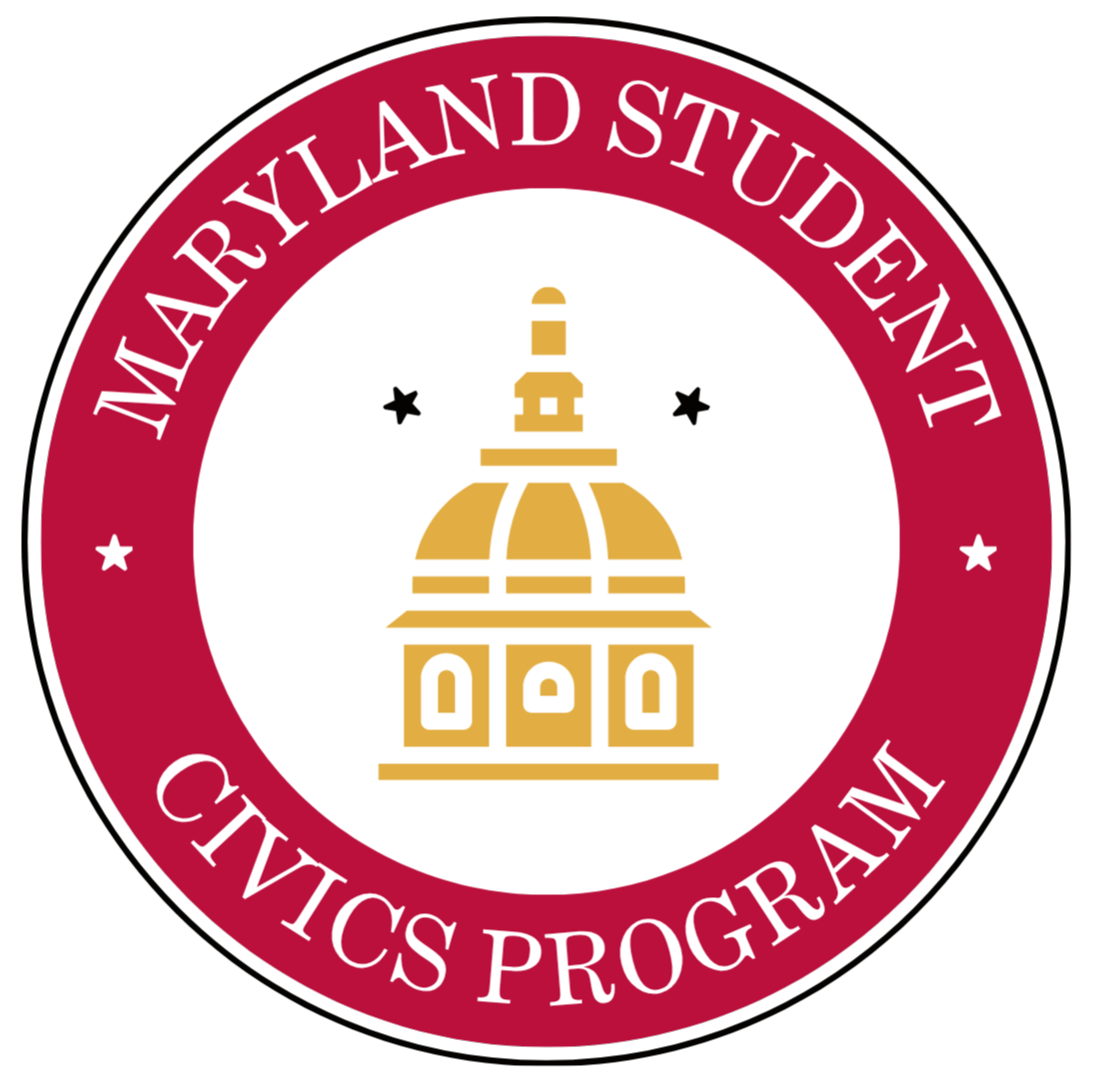Maryland Student Civics Program

Purpose: The Student Civics Program offers first-hand engagement with public officials to encourage and inspire enhanced youth participation in their communities.
Organization: The Student Civics Program operates for two 10-week sessions (coinciding with Fall and Spring semesters) each year. The Program Director is the Deputy Secretary of State, currently Michael Lore. The Program Director is assisted by a Student Coordinator, currently Max Schlossman, a student at Walt Whitman High School in Bethesda. The Director may select additional Student Coordinators if they are needed.
Participants: Participants must reside in Maryland and be a high school student. They sign up by completing an
online application and submitting the accompanying
 Parental Consent Form
Parental Consent Form. Sign-ups are on a rolling basis and will be permitted until the first day of a given session. There is no limit on the number of participants during a school year.
Activities: Participants attend lectures given by prominent speakers on civics topics. Speakers and topics are non-partisan. Past speakers have included Congressman Jamie Raskin, Delegate Mike Griffith, Secretary of Service and Civic Innovation Paul Monteiro, and State Board of Elections Administrator Jared DeMarinis. Past topics have included the Maryland State legislative process, the Maryland 250 Commission, the State Supreme Court, and learning about nonpartisan election related activities such as engaging with voter registration drives and election judge recruitment, Maryland history, subnational diplomacy, local government, the free press, the separation of powers, and other timely topics. These lectures are intended to spark non-partisan volunteer work and community organizational efforts.
Leadership: The Program Director is responsible for creating the curriculum, organizing the lectures, and inspiring the students to engage in non-partisan activities within their communities. The Program Director does not provide guidance on political value judgements.
Benefits: Participants may receive a completion certificate from the Program Director in recognition of their full participation in the Program. At the end of the 10-week session, students are encouraged to present their work to their peers and invited community members during a “science fair” style Maryland Student Civics Program Fair. Judges selected by the Program Director evaluate the presentations, with the winner receiving recognition from the Secretary of State.
Sample Lecture Topics:
- State Board of Elections and the Election Process in Maryland from the Administrator
- Overview of the Legislative Process in the Maryland General Assembly
- The Department of Service and Civic Innovation Overview from Secretary Monteiro
- Disagree Better - National Governors’ Association Program from 2024
- Bipartisan Cooperation
- Local Government Discussed by Annapolis Mayor Buckley
- 250 Commission Overview from the Executive Director
- 250 Commission Student Civics Challenge Presentation from Max
- Discussion with a Member of the Maryland Congressional Delegation
- Student Presentations
Application Process:
Students will apply via online Google Form up to the day of the first session (with the next session starting next Monday the 13th of October). Students will explain why they are interested in civics and what they hope to gain from the program.
Students will be selected based on their answers with some consideration for geographic diversity. Political affiliations will not be asked or relevant for the discussions, and the topics will remain focused on processes rather than political value judgements.
The deadline for applications is October 13th. Applications are considered complete once the parental consent form is received. Orientation will be held October 13th at 7pm.
*Participants will leave the program more confident to engage their local policymakers and understand what it takes to be an effective advocate. The lectures will provide an overview of important contacts and insights to grow their civic engagement development. Students will have engaged directly and feel more empowered to fulfill their civic purpose for their communities.
